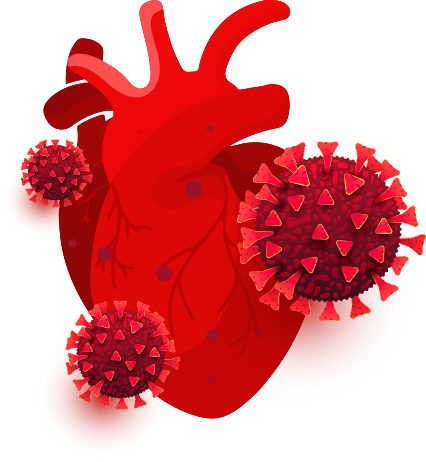



COVID-19 is an illness that infects the lungs. It is caused by a new coronavirus that started in China in late 2019 and has quickly spread worldwide. Although it is part of the same family of viruses that cause the common cold, COVID-19 is very different. Because it had never been seen in humans before, no one had existing immunity or ability to fight it.
We are learning more about the virus every day. For starters, we do not yet know:
People with COVID-19 have reported a wide range of symptoms that include:
Some people have also reported less common symptoms such as nausea, vomiting, or diarrhoea. Symptoms usually occur within 2-14 days of being exposed to the virus. But many people do not have any symptoms and do not even know they are infected.
Most people with the new coronavirus will have mild or moderate symptoms. This means they can usually recover at home, while isolating themselves from the rest of the household. But for as many as 1 in 5 people with COVID-19, the virus can be more serious. COVID-19 can lead to pneumonia, not getting enough oxygen, heart problems and even death. These complications are more common in older adults and those with existing health conditions, including heart disease.
Anyone can get COVID-19. But following people are more prone to developing infections:
There are no proven drugs, therapies, or vaccines available for COVID-19. Right now, the focus of treatment is to control the infection and manage symptoms and complications.
COVID-19 spreads mainly by droplets produced as a result of coughing or sneezing of a COVID-19 infected person. This can happen in two ways:
It is important to keep taking medications as directed. Till now there is no evidence that heart medications make you more likely to get COVID-19 or become seriously ill from it.
Managing heart condition during a pandemic stays the same just as you did before the COVID-19 outbreak, keep up with heart-healthy habits, manage stress and do not stop any medications without consulting your doctor. Heart attack or stroke Symptoms should not be ignored. It will still happen during a pandemic. These are medical emergencies and getting quick care is critical to limit any heart or brain damage. Do not delay calling your doctor because of fears that you might get COVID-19 at the hospital.
Beyond following the tried-and-true measures to avoid getting sick, people with existing heart conditions, should take six additional steps to stay healthy and heart strong.
1. Keep up with heart-healthy habits: Heart healthy habits will help to slow or prevent heart disease from getting worse.
2. Continue taking your medicines as directed :
3. Maintain distance :
4. Wear a cloth mask when you go out :
5. Have enough food, medications and supplies on hand-and ask about delivery :
6. Manage stress, stay connected :
Gather your supplies :
Talk/ discuss with your doctor :
Take everyday precautions :
If you think you may have been exposed to COVID-19 or feel like you are developing symptoms of COVID-19, contact doctor. Seek medical care immediately if you experience any of the emergency warning signs, including:
If you do become sick, here are some common tips. Please note these may vary for each person :
The risk for severe illness with COVID-19 increases with age, with older adults at highest risk. Severe illness means that a person with COVID-19 may require hospitalization, intensive care, or a ventilator to help them breathe, or they may even die.
Everyone should take steps to protect themselves from getting COVID-19.
Delay or cancel a visit if you or your visitors have symptoms of COVID-19 or have been exposed to someone with COVID-19 in the last 14 days.
Everyone should take steps to prevent getting and spreading the virus that causes COVID-19 to protect themselves, their communities, and people who are at increased risk of severe illness.